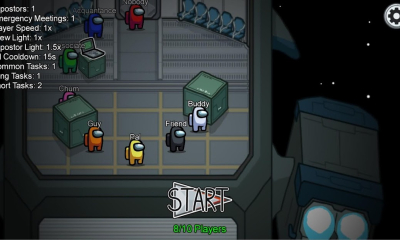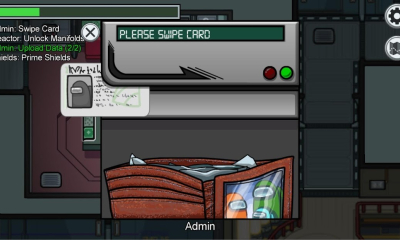Among Us
In an era where digital connection often supersedes physical interactions, video games have evolved as a medium to bring together individuals from every corner of the globe. Launched in 2018, it found its footing in popular culture during the height of the global pandemic in 2020, when social distancing became the norm, and virtual meetings were the closest substitute for physical gatherings. The game's premise is straightforward, yet it offers a complexity of social dynamics that rival any high-budget blockbuster game, forging an experience that's both thrilling and addictive, leading players to come back for more.
Ingeniously Simple Gameplay Dynamics
The core of Among Us pits crewmates against impostors within a space setting. Crewmates are charged with completing various tasks on a spaceship, a planetary base, or a floating platform while unmasking impostors whose objective is to sabotage these efforts and eliminate crewmates covertly. The gameplay creates an atmosphere of suspicion and intrigue, where every action can be interpreted in multiple ways, and trust is a currency in short supply.
What truly elevates Among Us are the additional elements that complement the fundamental mechanics. The visual art style, characterized by its cartoonish appeal featuring bean-shaped astronauts, fosters an accessible and inviting atmosphere, contrary to the often tense and suspicious interactions among players. The purposefully minimalistic design aids in keeping the game lighthearted, which plays a crucial role in its wide appeal.
The unobtrusive soundtrack serves to maintain a sense of calm, yet it subtly shifts when discussions among players regarding the identity of the impostors commence, enhancing the tension without being overpowering. Voice acting is absent, but this void is filled by the diverse sounds of tasks being completed, alarms sounding, and the quiet hum of a spaceship, contributing to a complete auditory experience.
Influence and Perceptions
Among Us has firmly established its position as a social phenomenon, influencing not only the gaming community but also transcending into pop culture and even political spheres, with politicians using the game to reach younger audiences. The perception of Among Us as a digital social space rather than just a game has become prevalent among its user base. The game's legacy will be noted for how it kindled friendships and provided a platform for laughter and bonding during a time of global anxiety and isolation.
Navigating Imperfections
The simplicity behind the game's success can also be considered a two-edged sword, as it can become repetitive for some players. The limited selection of cards and variety of tasks can cause a feeling of monotony after a long game. The reliance on social interaction for entertainment also means that playing with strangers, as opposed to friends, can sometimes result in a less engaging experience due to varying levels of commitment to the game's social dynamics.
Conclusion: The Echoes of Elegance in Deception
Reflecting upon personal experiences and the general consensus within the vast landscape of Among Us enthusiasts, it's evident that the game has made its mark as a source of enjoyment and a unique way to connect with others. The deceptively simple game of trust and deception has inspired laughter, frustration, and joy in equal measure. It has become a staple for those seeking a casual yet exhilarating game.
As a gamer, when the screen goes dark and the phrase "shh" appears, signaling the round's beginning, a palpable excitement fills the environment. Whether strategizing as an imposter to cunningly remove crewmates or hurrying to complete tasks while dodging potential treachery, the rush is undeniable. Even when the tables turn and the void of space becomes your temporary end, the eagerness to jump into the next round remains unquenched.
Users echo their impressions of the game through countless memes, stories, and shared screen recordings across social media platforms. The thrill of successfully defending oneself in the face of baseless accusations or the satisfaction of calling out an impostor's subtle slip-up become tales retold with gusto. The collective experiences forged within the digital corridors of Among Us have cemented its position as more than a game; it's a cultural touchpoint that’s captured a moment in time, offering solace and camaraderie amidst a world fraught with real-life challenges.
In conclusion, Among Us has achieved its widespread acclaim not through revolutionary graphics or a complex narrative but through its ability to foster a social experience that resonates with the fundamental human desire for interaction and the innate allure of a mystery waiting to be solved.































Leave a comment
Your comment is awaiting moderation. We save your draft here
0 Comments